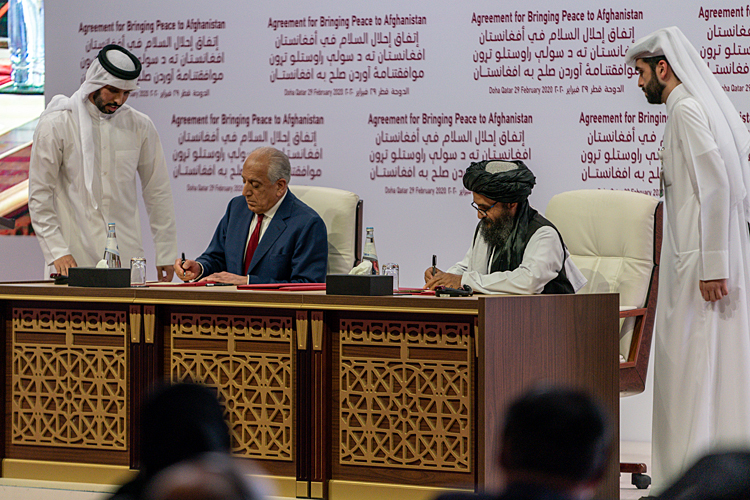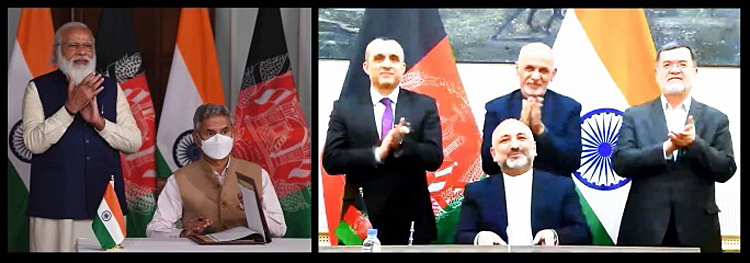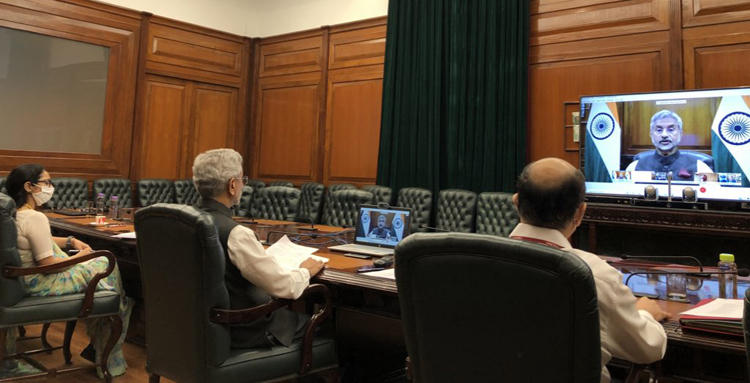INDIAN ARMED FORCES CHIEFS ON OUR RELENTLESS AND FOCUSED PUBLISHING EFFORTS

The insightful articles, inspiring narrations and analytical perspectives presented by the Editorial Team, establish an alluring connect with the reader. My compliments and best wishes to SP Guide Publications.

"Over the past 60 years, the growth of SP Guide Publications has mirrored the rising stature of Indian Navy. Its well-researched and informative magazines on Defence and Aerospace sector have served to shape an educated opinion of our military personnel, policy makers and the public alike. I wish SP's Publication team continued success, fair winds and following seas in all future endeavour!"

Since, its inception in 1964, SP Guide Publications has consistently demonstrated commitment to high-quality journalism in the aerospace and defence sectors, earning a well-deserved reputation as Asia's largest media house in this domain. I wish SP Guide Publications continued success in its pursuit of excellence.
- MoD initiates comprehensive review of Defence Acquisition Procedure 2020, pushes for defence reforms
- G7: The Swansong
- Kalinga Connect: South Asia to Polynesia
- Must Credit DRDO for Operation Sindoor, now what is next for defence R&D?
- The layered Air Defence systems that worked superbly, the key element of Operation Sindoor
- Operation Sindoor | Day 2 DGMOs Briefing
- Operation Sindoor: Resolute yet Restrained
The Taliban Factor
India has lagged in establishing contacts with the Afghan Taliban despite writing on the wall over the past several years that they will likely come to power in Kabul after the exit of US troops from Afghanistan or have a major say in governance
 |
The Author is Former Director General of Information Systems and A Special Forces Veteran, Indian Army |

News reports of June 9, 2021, stated that India for the first time has opened channels of communication with Afghan Taliban factions and leaders including Mullah Baradar. This is largely led by our security officials and is limited to Taliban factions and leaders outside the sphere of influence of Pakistan and Iran. It also says this has been underway for some months though only "exploratory" in nature.
Mullah Baradar, co-founder of the Afghan Taliban, signed the deal with then US Secretary of State Mike Pompeo on February 29, 2020. The deal included withdrawal of US troops from Afghanistan by May 1, 2021, which was extended to September 11 by US President Joe Biden. As deputy of Mullah Omar, Baradar was arrested by Pakistan's ISI in Karachi in February 2010 after he began negotiations with the Hamid Karzai government in Kabul. He was freed in 2018 apparently on behest of the US and became head of the Taliban diplomatic office in Doha, Qatar.
Over the years India has pledged over $3 billion in Afghanistan's reconstruction and development projects as the largest regional contributor
The media report quotes an anonymous source saying, "We have tried the earlier option of not engaging the Taliban and putting all our efforts into the Northern Alliance. But there has been a huge shift since then and there are some who think it might be better to have a line of communication with some Taliban leaders." This gives the impression of a half-hearted approach forced by circumstances. Parallel communication is on with Afghan Government and leaders.
Over the years India has pledged over $3 billion in Afghanistan's reconstruction and development projects as the largest regional contributor. India signed the Shahtoot Dam project with Afghanistan on February 9, 2021. The project, worth $ 286 million will bring relief to the residents of Kabul by providing safe drinking water for, at least, two million people. This dam will be India's second-largest in Afghanistan after the Salma Dam (renamed Friendship Dam) built by India. In addition, India will implement 150 High Impact Community Development Projects worth $80 million.
However, India has lagged in establishing contacts with the Afghan Taliban despite writing on the wall over the past several years that they will likely come to power in Kabul after the exit of US troops from Afghanistan or have a major say in governance. Virtual attendance by External Affairs Minister S. Jaishankar, at opening ceremony of the intra-Afghan talks on September 12, 2020, at Doha is being termed as the beginning of India's outreach to Afghan Taliban. But this appears be too little too late.
The Herat Security Dialogue IV held at Herat, Afghanistan on October 2-3, 2015, was attended by 17 countries in addition to the United Nations, NATO and Organisation of Islamic Counties (OIC). The Head of International Relations Committee of Kabul-based High Peace Council (HPC), a Taliban, attending the dialogue, when asked by an Indian delegate how Taliban view India, responded, "We don't trust Pakistan, we don't even like Iran, and we consider India a good friend." On being asked if India can undertake development projects in areas controlled by Taliban, he said yes but Pakistani forces operating inside covertly would not let that happen. His advice to India was to do likewise; enter Afghanistan covertly and they would be helped – obviously by sections within Taliban.
We take pride in championing democracy because of which we did not want to communicate with Afghan Taliban

Ironically, India never had the stomach for hybrid warfare and within this, sub-conventional operations, primarily because our diplomats have no clue how to go about it, whereas these should be extension of our foreign policy. Same goes for the National Security Advisor (NSA). To top this, we try to cover this weakness by portraying a moralistic attitude in our foreign policy dealings, whereas the world dropped morality in conflict decades ago. We should be having continues links across a large cross-section in countries of our strategic interest, without which we cannot be prepared for the future and exploit opportunities as they occur to expand India's influence and promote our national interests.
Moralistic attitude in foreign policy while using every dirty trick internally in the country has brought us to our present state. We have adverse strategic disadvantage vis-à-vis China and Pakistan at the sub-conventional level which has been hurting us for decades. We take pride in championing democracy because of which we did not want to communicate with Afghan Taliban, don't want to talk to the military junta ruling Myanmar, but are all putty when dealing with rogue China (never mind little measures that don't hurt China) despite its narcissist dictatorship and immoral record. Besides, how many democracies around the world are real democracies?
Opening of dialogue with Afghan Taliban is good even though very late but it is reiterated that contacts with multiple organisations and agencies in countries of our strategic interests' particularly immediate neighbours must be a continuous process. This is where all intelligence agencies must focus, acknowledging hybrid warfare does not recognise international borders, rather than how to down opposition parties within the country and win state elections. What will be the rebound in Pakistan of US troops exiting Afghanistan is important but we need to focus more on its adverse impact on India.
Opening of dialogue with Afghan Taliban is good even though very late but contacts with multiple organisations and agencies in countries of our strategic interests' particularly immediate neighbours must be a continuous process

Inputs from Afghan intelligence services on June 15, 2021, reveal that offensive of large Taliban groups in Faryab Province and number of other northern provinces of Afghanistan is being led by retired Pakistani army officers. This is also confirmed by sources close to Abdul Rashid Dostum who is organising the anti-Taliban militia. Taliban spokesman Suhail Shaheen recently said, "Pakistan is our neighbour, we have shared values and history. India is also our regional country. None can change one's neighbours or region. We must accept this reality and have peaceful coexistence. That is in the interest of all."
It is well known that both China and Pakistan support the Taliban but this should not discourage us from making multiple contacts with both the Taliban and anti-Taliban forces. Beyond the conventional and cold start doctrines we need to work out a hybrid warfare doctrine putting structures in place since hybrid warfare targets the adversary country and not the military alone. The lead to address the issue would best be taken up by MEA and we should work out a joint hybrid warfare approach with our strategic partners. It is time we shed our reactive approach and habit of waking up at the last hour.





